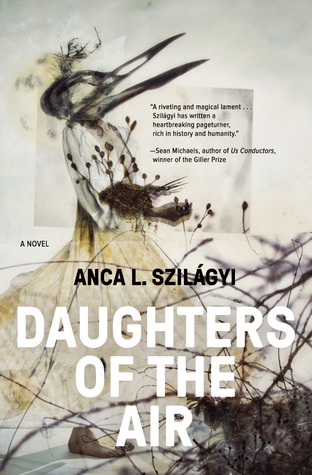Tatiana "Pluta" Spektor was a mostly happy, if awkward, young girl—until her sociologist father was disappeared during Argentina’s Dirty War. Sent a world away by her grieving mother to attend boarding school outside New York City, Pluta wrestles alone with the unresolved tragedy and at last runs away: to the streets of Brooklyn in 1980, where she figuratively—and literally—spreads her wings. Told with haunting fabulist imagery by debut novelist Anca L. Szilágyi, this searing tale of love, loss, estrangement, and coming of age is an unflinching exploration of the personal devastation wrought by political repression.
Goodreads description
I was asked to read this book by its author, who is also a member of the Magic Realist Books Facebook Group. I am under no obligation to write a review, however here it is.
This is an interesting book, beautifully written. It is also, as the Goodreads description makes clear, an unflinching account of the devastation wrought by political repression. Indeed there will be some readers who will find this novel somewhat too unflinching. It does not look away from what too often happens when a naive teenage girl runs away to the big city. The magic realism reflects this grittiness. In another writer's hands when Pluta grows and spreads her wings (literally and metaphorically) they would be a bird's or an angel's - all soft feathers - but Pluta has the wings of a bat or similar.
For the Disappeared in the world of the Argentinian Dirty War, flying was a matter of being hurled from a helicopter into the ocean. It is against this background and the unknown fate of Pluta's beloved father that Pluta's story and that of her mother, Isabel, unfolds. In some ways Pluta's descent into the hell of 1980's Brooklyn, mirrors that of her father, who like Pluta is both naive and innocent.
Szilagyi's treatment of both the main characters require the reader to think and fill in the gaps. The ending is in many ways not a resolution but a compromise that allows life to continue. In every way this is a mature intelligent book which may not suit all readers, but it is an example of how magic realism is so suited to ambiguity and to difficult subjects.
